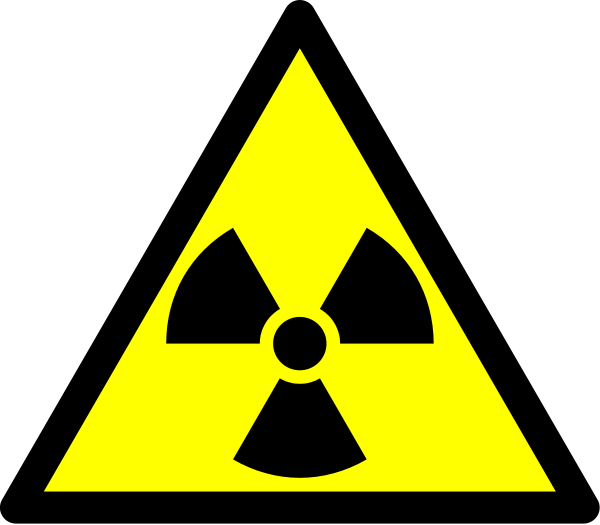Radiation injury: Difference between revisions
Jump to navigation
Jump to search
Ochuko Ajari (talk | contribs) No edit summary |
|||
| (8 intermediate revisions by one other user not shown) | |||
| Line 1: | Line 1: | ||
__NOTOC__ | |||
'''For patient information click [[Radiation injury (patient information)|here]]''' | '''For patient information click [[Radiation injury (patient information)|here]]''' | ||
{{Infobox_Disease | | {{Infobox_Disease | | ||
| Line 6: | Line 7: | ||
}} | }} | ||
{{Radiation injury}} | {{Radiation injury}} | ||
{{CMG}}; {{AE}} {{CZ}} | {{CMG}}; {{AE}} {{CZ}}; {{Ochuko}} | ||
==[[Radiation injury overview|Overview]]== | |||
==[[Radiation injury classification|Classification]]== | |||
==[[Radiation injury pathophysiology|Pathophysiology]]== | |||
==[[Radiation injury causes|Causes]]== | |||
== | ==[[Radiation injury differential diagnosis|Differentiating Radiation Injury from other Diseases]]== | ||
==[[Radiation injury risk factors|Risk Factors]]== | |||
[[ | ==[[Radiation injury screening|Screening]]== | ||
== | ==[[Radiation injury natural history, complications and prognosis|Natural History, Complications and Prognosis]]== | ||
==[[Radiation injury diagnosis|Diagnosis]]== | |||
[[Radiation injury history and symptoms|History and Symptoms]] | [[Radiation injury physical examination|Physical Examination]] | [[Radiation injury laboratory findings|Laboratory Findings]] | [[Radiation injury MRI|MRI]] | [[Radiation injury other imaging findings|Other Imaging Findings]] | [[Radiation injury other diagnostic studies|Other Diagnostic Studies]] | |||
== | ==Treatment== | ||
[[Radiation injury medical therapy|Medical Therapy]] | [[Radiation injury surgery|Surgery]] | [[Radiation injury primary prevention|Primary Prevention]] | [[Radiation injury cost-effectiveness of therapy|Cost-Effectiveness of Therapy]] | [[Radiation injury future or investigational therapies|Future or Investigational Therapies]] | |||
==Case Studies== | |||
[[Radiation injury case study one|Case #1]] | |||
==External Links== | |||
*[http://www.bt.cdc.gov/radiation/arsphysicianfactsheet.asp#table1 Centers for Disease Control and Prevention] | *[http://www.bt.cdc.gov/radiation/arsphysicianfactsheet.asp#table1 Centers for Disease Control and Prevention] | ||
* [http://bjr.birjournals.org/cgi/reprint/Supplement_27/1/41.pdf Radiation accidents with multi-organ failure in the United States] | * [http://bjr.birjournals.org/cgi/reprint/Supplement_27/1/41.pdf Radiation accidents with multi-organ failure in the United States] | ||
* [http://www.johnstonsarchive.net/nuclear/radevents/radaccidents.html List of radiation accidents and other events causing radiation casualties] | * [http://www.johnstonsarchive.net/nuclear/radevents/radaccidents.html List of radiation accidents and other events causing radiation casualties] | ||
| Line 71: | Line 41: | ||
* [http://www.bt.cdc.gov/radiation/arsphysicianfactsheet.asp The Center for Disease Control's fact sheet on Acute Radiation Syndrome] | * [http://www.bt.cdc.gov/radiation/arsphysicianfactsheet.asp The Center for Disease Control's fact sheet on Acute Radiation Syndrome] | ||
* [http://courses.cs.vt.edu/~cs3604/lib/Therac_25/Therac_1.html Therac-25 computerized radiation therapy machine accidents] | * [http://courses.cs.vt.edu/~cs3604/lib/Therac_25/Therac_1.html Therac-25 computerized radiation therapy machine accidents] | ||
{{Consequences of external causes}} | {{Consequences of external causes}} | ||
[[Category:Emergency medicine]] | [[Category:Emergency medicine]] | ||
Latest revision as of 17:39, 22 April 2013
For patient information click here
| Radiation injury | |
 | |
|---|---|
| Radiation Hazard symbol. |
|
Radiation injury Microchapters |
|
Diagnosis |
|---|
|
Treatment |
|
Case Studies |
|
Radiation injury On the Web |
|
American Roentgen Ray Society Images of Radiation injury |
Editor-In-Chief: C. Michael Gibson, M.S., M.D. [1]; Associate Editor(s)-in-Chief: Cafer Zorkun, M.D., Ph.D. [2]; Ogheneochuko Ajari, MB.BS, MS [3]
Overview
Classification
Pathophysiology
Causes
Differentiating Radiation Injury from other Diseases
Risk Factors
Screening
Natural History, Complications and Prognosis
Diagnosis
History and Symptoms | Physical Examination | Laboratory Findings | MRI | Other Imaging Findings | Other Diagnostic Studies
Treatment
Medical Therapy | Surgery | Primary Prevention | Cost-Effectiveness of Therapy | Future or Investigational Therapies
Case Studies
External Links
- Centers for Disease Control and Prevention
- Radiation accidents with multi-organ failure in the United States
- List of radiation accidents and other events causing radiation casualties
- The critical accident in Sarov, International Atomic Energy Agency
- The Center for Disease Control's fact sheet on Acute Radiation Syndrome
- Therac-25 computerized radiation therapy machine accidents